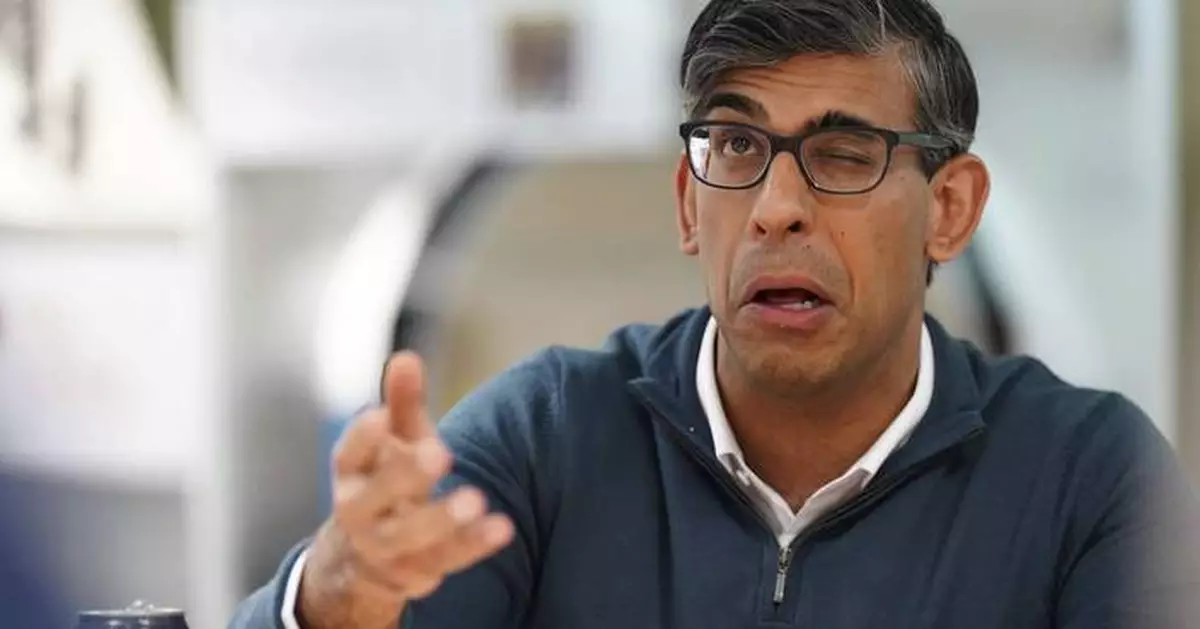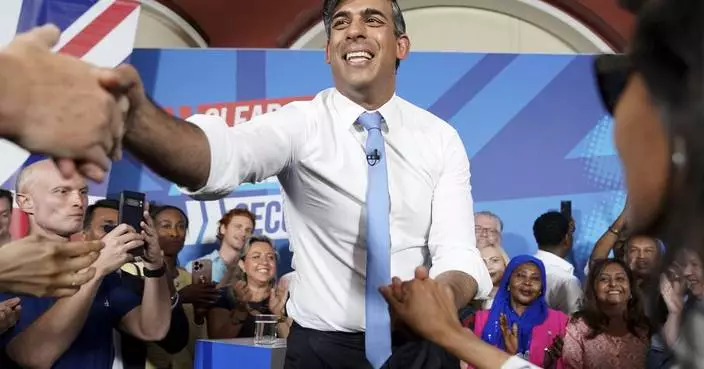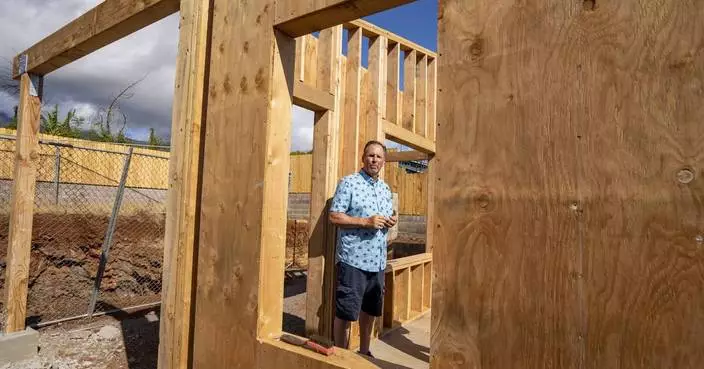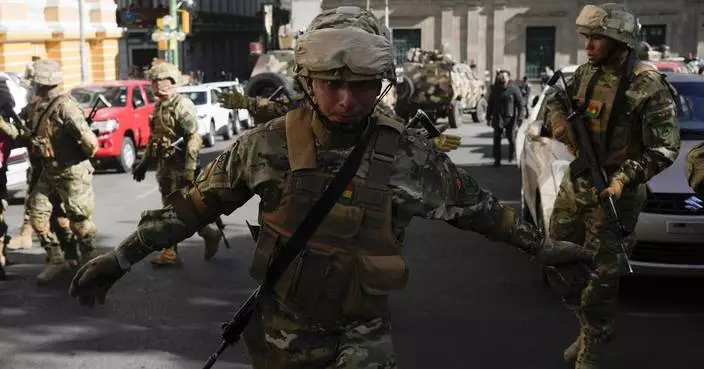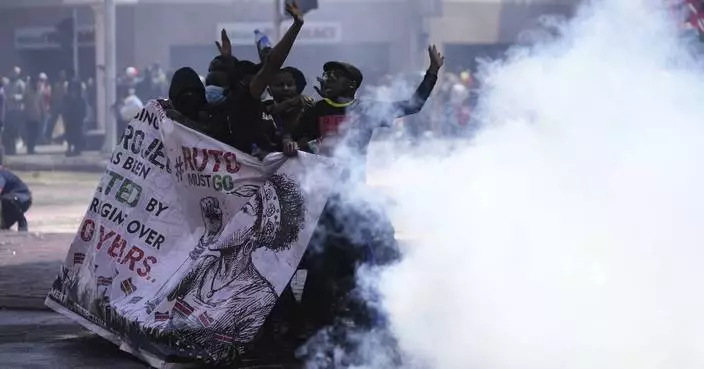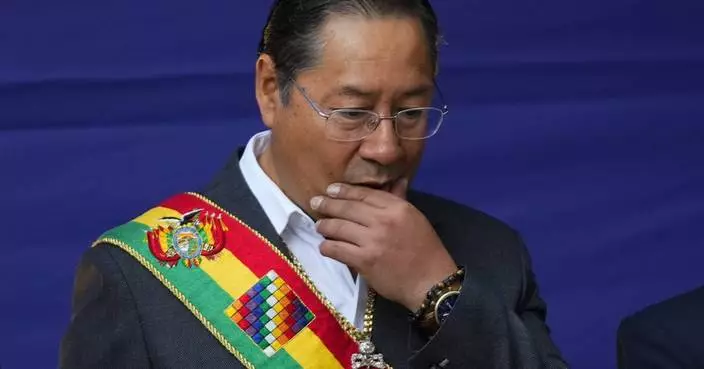LONDON (AP) — One of Prime Minister Rishi Sunak’s police bodyguards has been arrested over alleged bets on the date of Britain’s national election made before it was announced, authorities said Wednesday.
The Metropolitan Police force said that a constable in the Royalty and Specialist Protection Command was arrested Monday on suspicion of misconduct in public office.
The arrest came after the Gambling Commission contacted the force. The commission, which regulates the gambling industry, confirmed it was investigating “the possibility of offences concerning the date of the election."
Sunak announced May 22 that an election for Parliament would be held on July 4. The date had been a closely guarded secret and the announcement took many people in Sunak’s governing Conservative Party by surprise. Most had assumed the election would be held in the fall.
Betting is a popular activity in the U.K., with bookmakers offering odds on everything from sports to elections and the winners of literary prizes. Cheating by acting on inside information is a criminal offense.
The arrested officer was released on bail pending further inquiries and has been removed from duty while the force conducts its own investigation. The officer was not named. British police usually do not identify suspects until they are charged.
Last week Sunak aide Craig Williams, who is running to be reelected to Parliament, acknowledged he was being investigated by the Gambling Commission for placing a 100 pound ($128) bet on a July election before the date had been announced.
Williams said the regulator was making “some routine inquiries and I confirm I will fully cooperate with these.”
“I don’t want to be a distraction from the campaign, I should have thought through how it looked," he said.
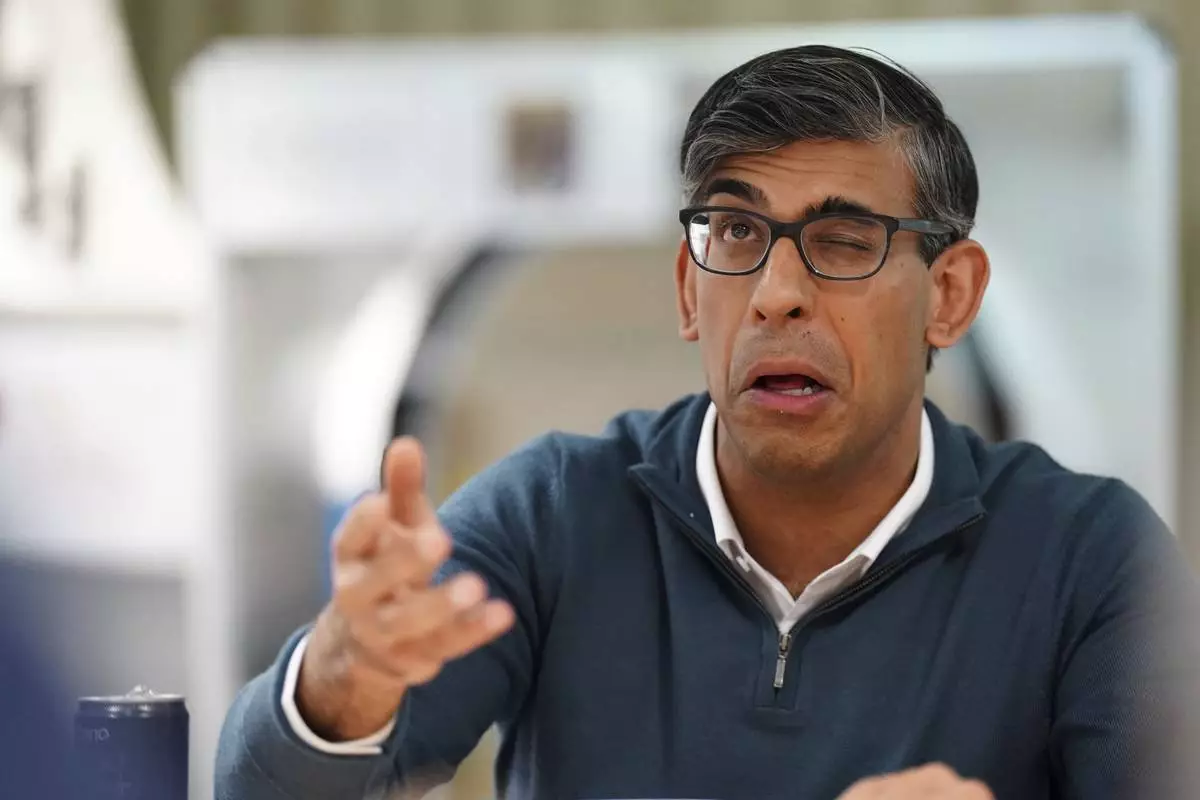
Britain's Prime Minister Rishi Sunak gestures during a visit to Sizewell in Suffolk, England, while on the General Election campaign trail, Wednesday June 19, 2024. (James Manning/PA via AP)
LONDON (AP) — Dutiful, managerial, a bit dull — Keir Starmer is no one’s idea of a firebrand politician.
The Labour Party hopes that is just what Britain wants and needs after 14 turbulent years of Conservative rule. Starmer, the center-left party’s 61-year-old leader, is the current favorite to win the country’s July 4 election.
Starmer has spent four years as opposition leader dragging his social democratic party from the left towards the political middle ground. His message to voters is that a Labour government will bring change — of the reassuring rather than scary kind.
“A vote for Labour is a vote for stability — economic and political,” Starmer said after Prime Minister Rishi Sunakcalled the election on May 22.
If opinion polls giving Labour a consistent double-digit lead are borne out on election day, Starmer will become Britain's first Labour prime minister since 2010.
A lawyer who served as chief prosecutor for England and Wales between 2008 and 2013, Starmer is caricatured by opponents as a “lefty London lawyer.” He was knighted for his role leading the Crown Prosecution Service, and Conservative opponents like to use his title, Sir Keir Starmer, to paint him as elite and out of touch.
Starmer prefers to stress his everyman credentials and humble roots — in implicit contrast to Sunak, who is a former Goldman Sachs banker married to the daughter of a billionaire.
He loves soccer — still plays the sport on weekends — and enjoys nothing more than watching Premier League team Arsenal over a beer in his local pub. He and his wife Victoria, who works in occupational health, have two teenage children they strive to keep out of the public eye.
Born in 1963, Starmer is the son of a toolmaker and a nurse who named him after Keir Hardie, the Labour Party’s first leader. One of four children, he was raised in a cash-strapped household in a small town outside London.
“There were hard times,” he said in a speech launching his campaign. “I know what out of control inflation feels like, how the rising cost-of-living can make you scared of the postman coming down the path: ‘Will he bring another bill we can’t afford?’
“We used to choose the phone bill because when it got cut off, it was always the easiest to do without.”
Starmer’s mother suffered from a chronic illness, Still’s disease, that left her in pain, and Starmer has said that visiting her in the hospital and helping to care for her helped form his strong support for the state-funded National Health Service.
He was the first member of his family to go to college, studying law at Leeds University and Oxford, and practiced human rights law before being appointed chief prosecutor.
He entered politics in his 50s and was elected to Parliament in 2015. He often disagreed with party leader Jeremy Corbyn, a staunch socialist, at one point quitting the party’s top team over disagreements, but agreed to serve as Labour’s Brexit spokesman under Corbyn.
Starmer has faced repeated questions about that decision, and about urging voters to support Corbyn during the 2019 election.
He said he wanted to stay and fight to change Labour, arguing that “leaders are temporary, but political parties are permanent.”
After Corbyn led Labour to election defeats in 2017 and 2019 — the latter the party’s worst result since 1935 — Labour picked Starmer to lead efforts to rebuild.
His leadership has coincided with a turbulent period that saw Britain go through the COVID-19 pandemic, leave the EU, absorb the economic shock of Russia’s invasion of Ukraine and endure economic turmoil from Liz Truss’s turbulent 49-day term as prime minister in 2022.
Voters are weary from a cost-of-living crisis, a wave of public sector strikes and political turmoil that saw the Conservative Party dispatch two prime ministers within weeks in 2022 — Boris Johnson and Truss — before installing Sunak to try to steady the ship.
Starmer imposed discipline on a party with a well-earned reputation for internal division, ditched some of Corbyn’s more overtly socialist policies and apologized for antisemitism that an internal investigation concluded had been allowed to spread under Corbyn.
Starmer promised “a culture change in the Labour Party.” His mantra is now “country before party.”
Starmer was a strong opponent of Britain’s decision to leave the European Union, though now says a Labour government would not seek to reverse it.
Critics say that shows a lack of political principle. Supporters say it’s pragmatic and respects the fact that British voters have little desire to revisit the divisive Brexit debate.
Now Starmer must persuade voters that a Labour government can ease Britain’s chronic housing crisis and repair its fraying public services, especially the creaking health service — but without imposing tax increases or deepening the public debt.
To the dismay of some Labour supporters, he watered down a pledge to spend billions investing in green technology, saying a Labour government would not borrow more to fund public spending.
“A lot of people on the left will accuse him of letting them down, betraying socialist principles. And a lot of people on the right accuse him of flip-flopping,” said Tim Bale, political scientist at Queen Mary University of London.
“But, hey, if that’s what it takes to win, then I think that tells you something about Starmer’s character. He will do whatever it takes -- and has done whatever it takes -- to get into government.”
The party has surged in the polls under his leadership, which has helped keep Starmer's internal critics onside.
At the party’s conference in October he showed a flash of passion, telling cheering delegates: “I grew up working class. I’ve been fighting all my life. And I won’t stop now.” He also showed remarkable composure when a protester rushed onstage and showered Starmer with glitter and glue.
Some have likened this election to 1997, when Tony Blair led Labour to a landslide victory after 18 years of Conservative rule.
Bale says Starmer lacks Blair’s charisma. But, he said, “given the turmoil that Brits have had to endure since the Brexit referendum in 2016, a bit of boring wouldn’t go down that badly, I think, with the public.”
Associated Press writer Danica Kirka contributed to this story.
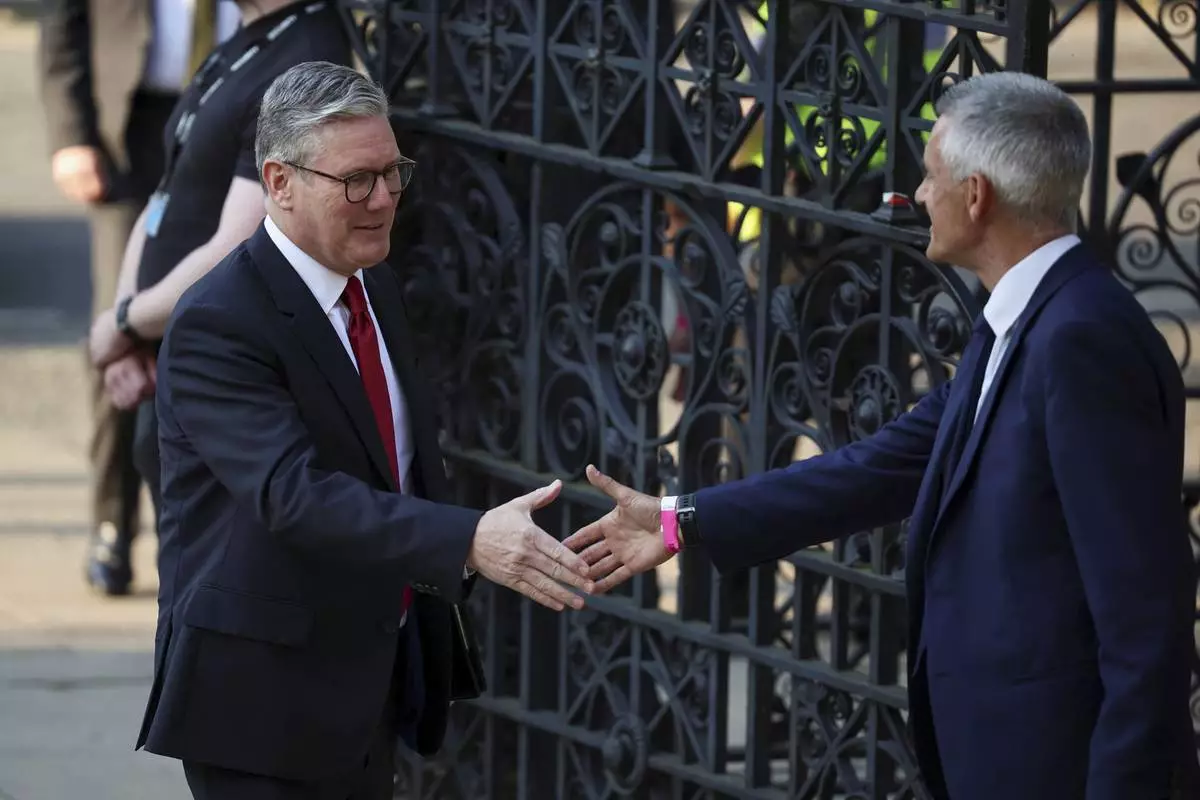
Britain's opposition Labour Party leader Keir Starmer is welcomed by BBC Director-General Tim Davie for the BBC's Prime Ministerial Debate, in Nottingham, England, Wednesday June 26, 2024. (Phil Noble/Pool via AP)
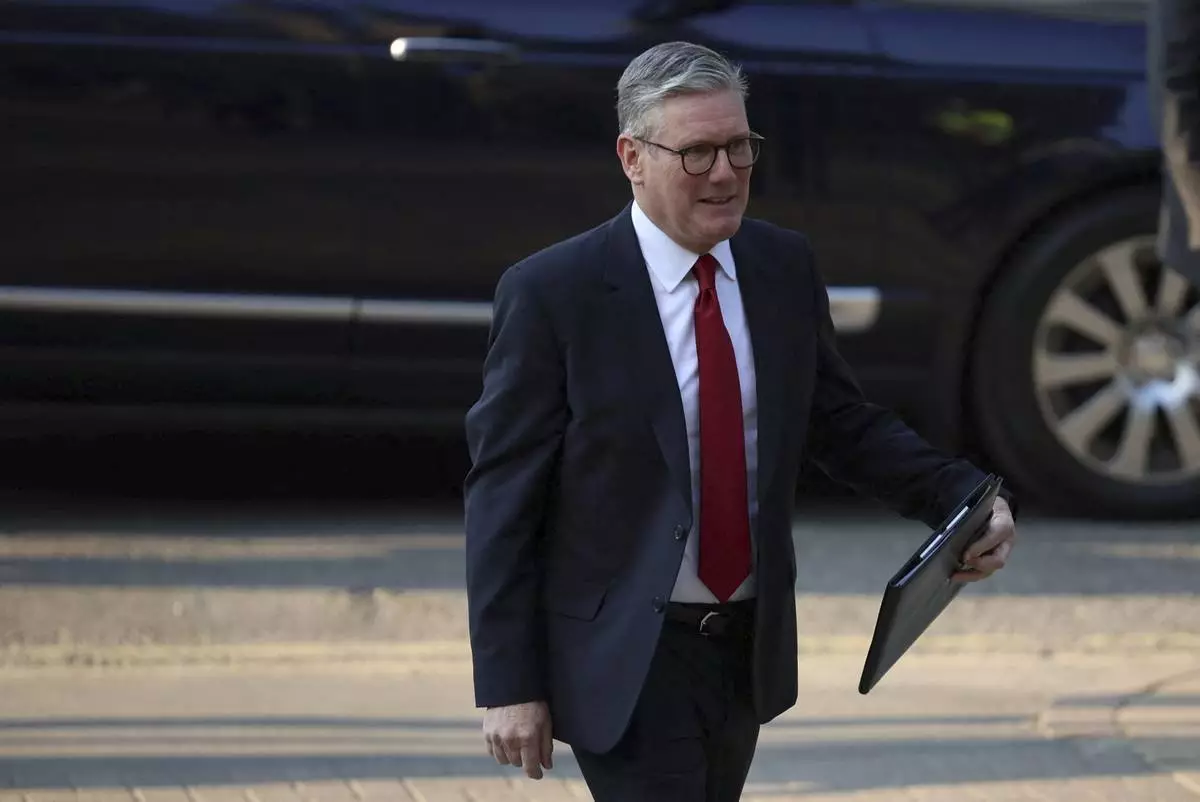
Britain's opposition Labour Party leader Keir Starmer arrives for the BBC's Prime Ministerial Debate, in Nottingham, England, Wednesday June 26, 2024. (Phil Noble/Pool via AP)
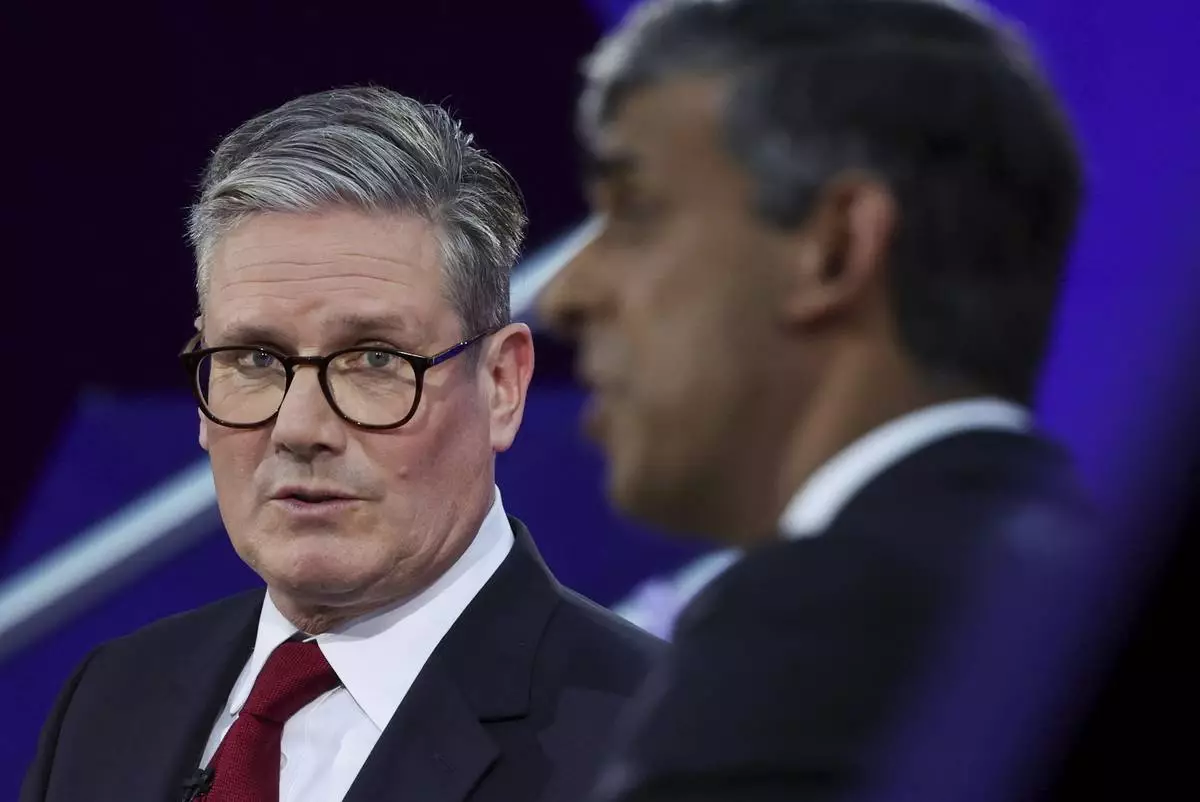
Britain's Prime Minister Rishi Sunak and opposition Labour Party leader Keir Starmer, left, take part for the BBC's Prime Ministerial Debate, in Nottingham, England, Wednesday June 26, 2024. (Phil Noble/Pool via AP)
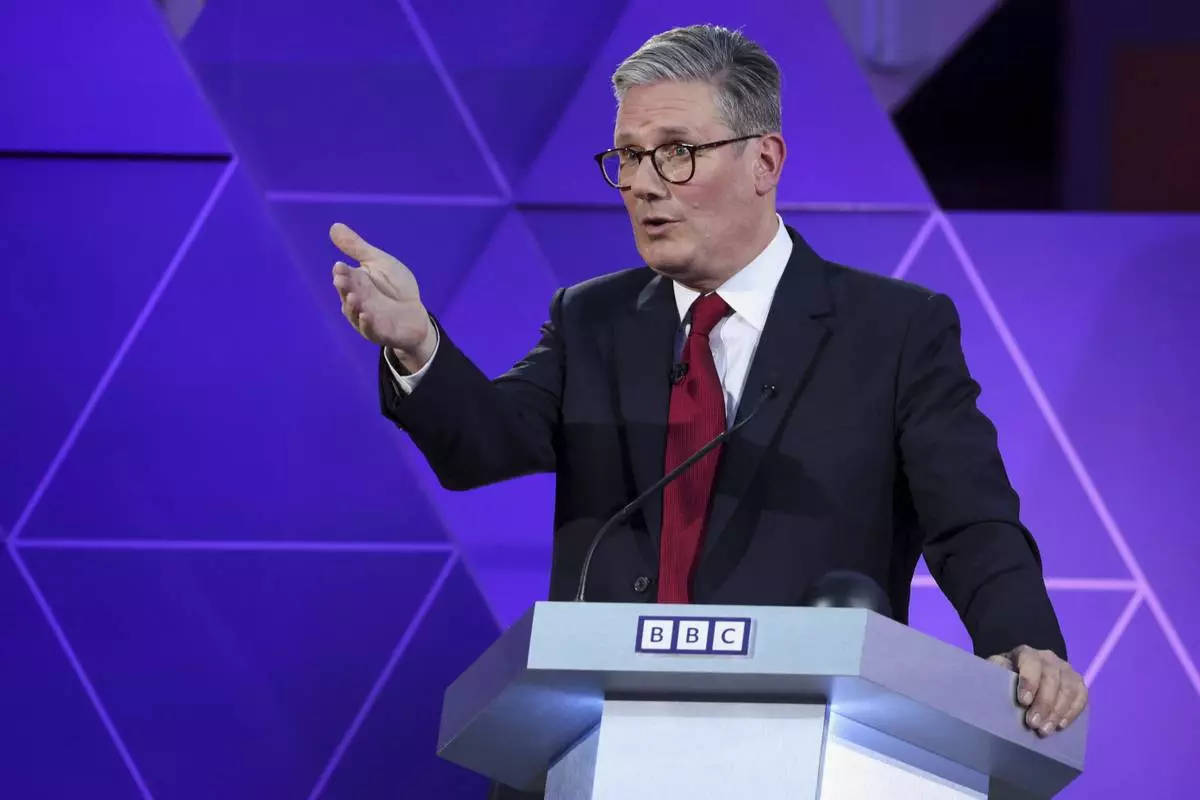
Britain's opposition Labour Party leader Keir Starmer takes part for the BBC's Prime Ministerial Debate, in Nottingham, England, Wednesday June 26, 2024. (Phil Noble/Pool via AP)



